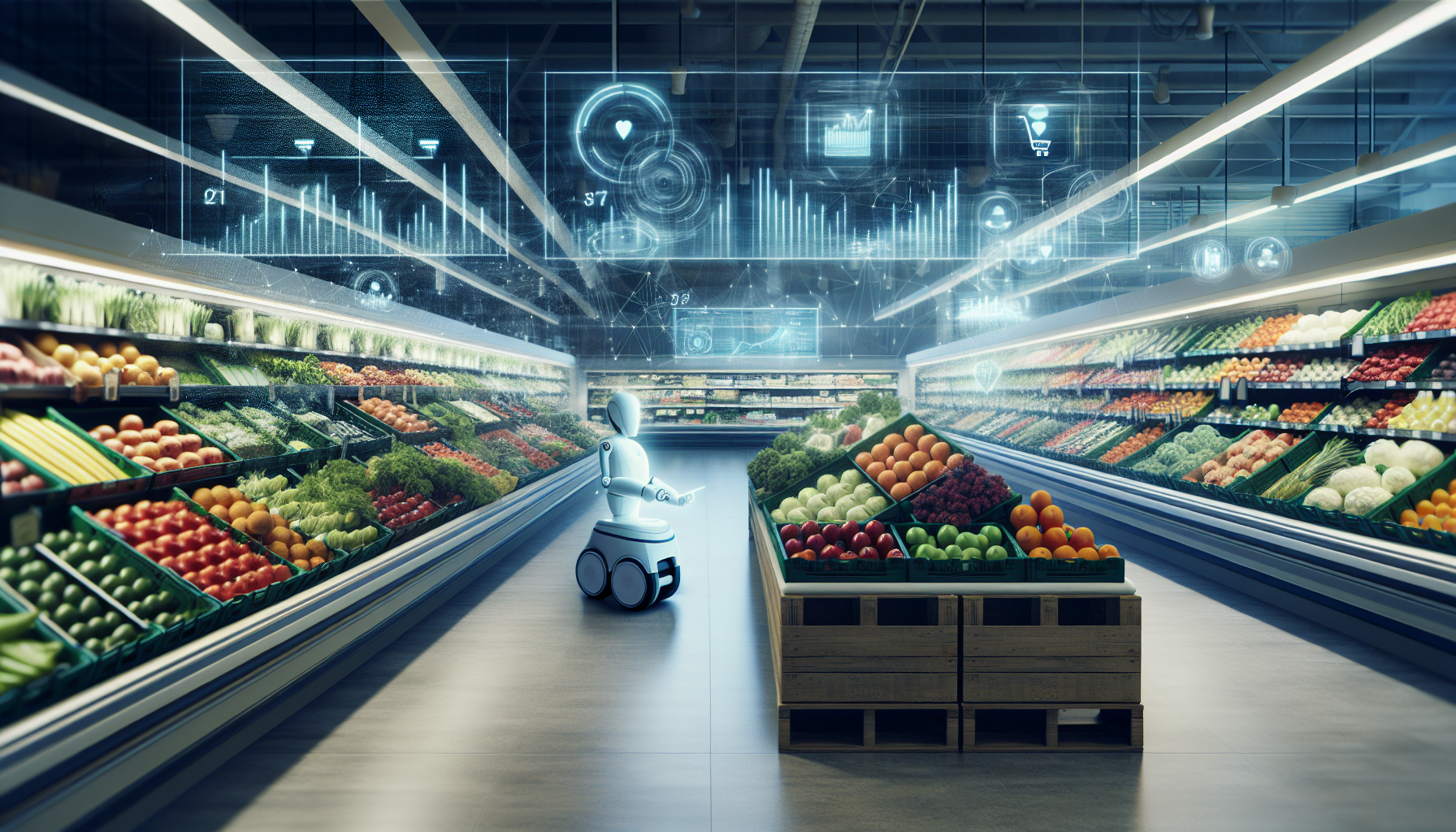In today’s competitive retail landscape, keeping pace with consumer preferences and leveraging cutting-edge technology are paramount for success. Retailers are increasingly recognizing the pivotal role fresh foods and artificial intelligence (AI) play in enhancing in-store operations and driving sales. This article explores how the integration of fresh food offerings and AI-driven innovations are revolutionizing the retail industry.
The Boom in Fresh Foods
Consumers today are more health-conscious and are gravitating towards fresh, unprocessed foods. This shift is strongly reflected in their shopping habits, making fresh foods a significant driver of sales for retailers.
Consumer Demand for Freshness
Modern consumers seek out fresh produce, meats, and dairy products. They are no longer swayed solely by convenience; quality and freshness are key deciding factors. Here’s why fresh foods are crucial:
- Health Benefits: Fresh foods are often seen as healthier options free from preservatives, which attract health-conscious buyers.
- Sustainability: Local and organic fresh foods align with the growing trend towards sustainable and environmentally friendly choices.
- Enhanced Flavor: Fresh items often offer better taste and nutritional value, providing a superior culinary experience.
Impact on Retailer Sales
Stores with a robust fresh food section tend to experience increased foot traffic and enhanced customer loyalty. Fresh foods not only draw customers in, but they also encourage shoppers to spend more time and money in-store, culminating in higher overall sales.
AI’s Role in Reshaping Retail
As consumer behaviors evolve, so must the strategies retailers use to meet these changing demands. AI technology is at the forefront of this transformation, significantly enhancing data analysis and in-store operations.
Optimizing Inventory Management
AI-driven inventory management systems help retailers maintain an optimal supply of fresh foods. These systems predict which items are most likely to sell quickly and which may be at risk of spoiling, thus reducing waste and maximizing profitability.
- Demand Forecasting: AI algorithms analyze historical data and current trends to predict product demand accurately. This ensures that the stocked quantities meet customer needs without overstocking.
- Shelf Life Monitoring: AI solutions can track the condition and shelf life of perishable items, alerting store managers when products are nearing their expiration dates.
- Supply Chain Efficiency: AI optimizes the supply chain by streamlining logistics and ensuring timely restocking of fresh products.
Enhanced Customer Experience
AI technologies contribute to a superior customer shopping experience by personalizing interactions and streamlining processes.
- Personalized Recommendations: AI leverages customer data to offer personalized product recommendations, guiding shoppers toward fresh food items that match their preferences.
- Smart Shopping Carts: AI-powered smart carts help customers locate fresh products quickly and provide information about nutritional content, origin, and recipes.
- Checkout Automation: Self-checkout systems equipped with AI can speed up the purchasing process, reducing wait times and enhancing overall satisfaction.
Data-Driven Insights
Leveraging AI for data analysis offers retailers valuable insights into customer preferences and market trends, emulating a proactive approach to retail strategies.
Customer Behavior Analysis
AI systems gather and analyze vast amounts of data related to customer behaviors and buying patterns. These insights enable retailers to:
- Tailor Marketing Campaigns: Customized marketing efforts based on data-driven insights can better resonate with target audiences, promoting fresh food offerings effectively.
- Forecast Trends: Anticipate emerging trends in customer preferences for fresh foods, allowing retailers to adjust their inventory and marketing strategies accordingly.
- Improve Store Layouts: Data analysis can reveal optimal store layouts and product placements, encouraging increased engagement with fresh food sections.
Future of Retail with AI and Fresh Foods
As we look to the future, the integration of AI and fresh food offerings will continue to shape the retail industry. Retailers that embrace these technologies and align their strategies with consumer demand for fresh, high-quality products will be well-positioned for success.
- Innovative Shopping Experiences: Future retail environments will likely incorporate more AI-driven interactive elements, such as virtual shopping assistants and augmented reality displays.
- Sustainability Practices: AI can assist retailers in adopting more sustainable practices, ensuring the efficient distribution of fresh foods with minimal waste.
- Enhanced Customer Loyalty: By consistently offering fresh, high-quality products and a personalized shopping experience, retailers can cultivate long-term customer loyalty.
Conclusion
The fusion of fresh foods and AI technology is revolutionizing the retail industry by boosting sales, optimizing in-store operations, and elevating the overall customer experience. As retailers continue to adopt these advancements, they will not only meet but exceed the evolving expectations of today’s discerning shoppers. The future of retail is undeniably fresh and intelligent.





